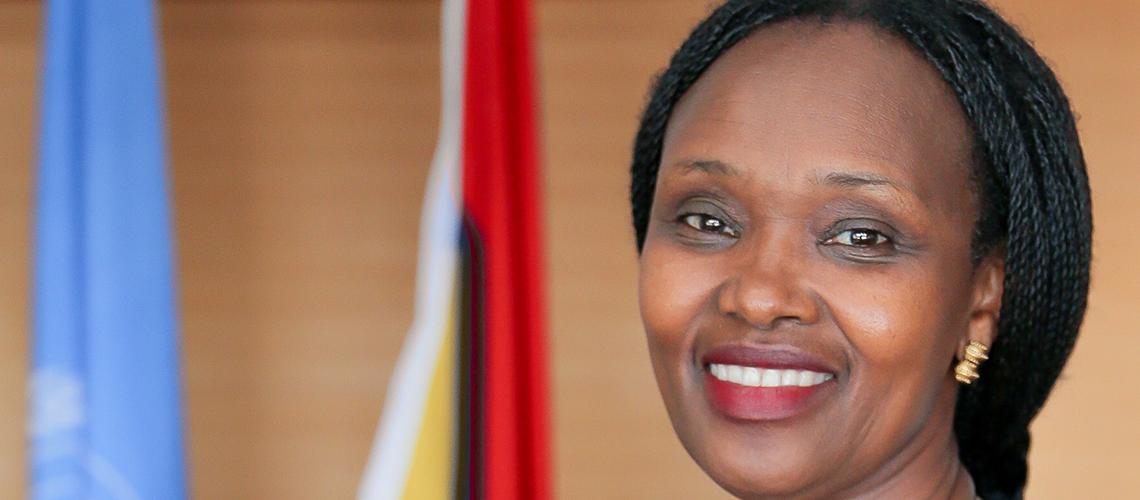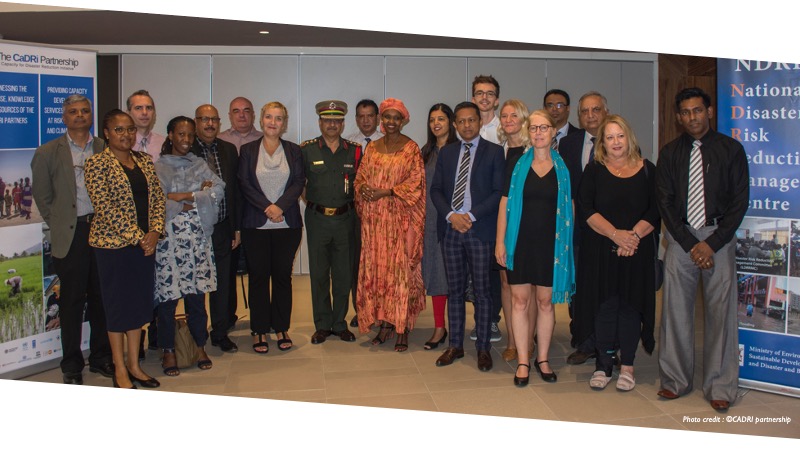
The Republic of Mauritius is highly vulnerable to the impact of climate change and disasters. In 2020 the Government initiated a journey to prioritize and implement the recommendations made to strengthen disaster and climate risk management in the country. We interview Christine N. Umutoni, UN Resident Coordinator for Mauritius and Seychelles, on her experience working with CADRI over the past year.
What motivated you to facilitate government request for CADRI support in 2019? What were your expectations?
Christine N Umutoni: The reason why the Government of Mauritius requested CADRI support last year was because there had recently been a serious of “mini-disasters” in the country. In the aftermath of tropical cyclone Carlos in 2017 and cyclone category three Berguitta, which showed increased risk of the country to disasters, Mauritius went through an internal analysis of capacities to try to identify whether the country could deal with higher category disasters.
All the islands in the region have climate change associated risks and other risks due to natural disasters. For this reason, the Government was very much on-board with the CADRI process from the very beginning as it also coincided with an internal reform process taking place in parallel.
The assessment itself went very well. COVID-19 and the Wakashio oil spill reinforced the importance of the CADRI assessment, particularly as the recommendations made in the capacity diagnosis report turned out to be very relevant in that context. The report was very appreciated by the Government, but also other actors such as the private sector, interested in understanding their roles and responsibilities in the event of such disasters. The Government is taking the implementation of the CADRI recommendations very seriously.
The assessment met the expectations that all key stakeholders in the country had. We only hope that CADRI can continue to support and accompany the Government throughout the implementation process.

In your opinion, what is the added value that CADRI brings to the countries it supports?
Christine N Umutoni: From my experience, CADRI’s added value is based on:
- How it brings results together into one product. There are a wealth of different analysis and reports on disaster risk reduction produced by different partners, but there are none as comprehensive as CADRI’s Capacity Diagnosis report.
- It provides direction for policy action in a way that is easy for policy makers to understand and action.
- Finally, it brings people and agencies in the country together and fosters collaboration across agencies and sectors.
As the UN Resident Coordinator, I support initiatives by a group of agencies in various thematic areas and CADRI is one of them.
What would be your recommendations to strengthen the CADRI offer of services and to make it more relevant in the context of the COVID-19 crisis?
Christine N Umutoni: To keep the momentum gained over the last year in Mauritius, we would need a series of follow up workshops with key stakeholders and increased communications work around CADRI. We need CADRI to continue to engage with senior leaders to keep this issue in their radar, especially as the disasters that have affected Mauritius are still fresh in our mind. We can’t lose the momentum.
Something else we would appreciate would be guidance from CADRI on where and how to access the relevant resources (both technical and financial) to support the implementation of some of the actions recommended in the report.
Finally, it would be beneficial for us to have a CADRI focal point in Mauritius dedicated to ensuring regular follow-up on implementation of CADRI recommendations.
